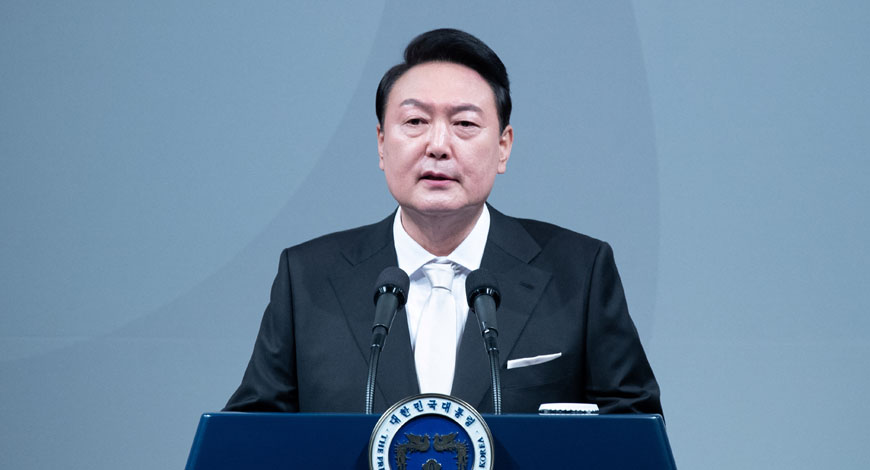International Circuit
South Korea warns of AI-powered fake news threat to democracy

South Korean President Yoon Suk Yeol on Monday called fake news and disinformation based on AI and digital technology threats to democracy, as some officials attending a global summit accused Russia and China of conducting malicious propaganda campaigns.
Speaking at the opening of the Summit for Democracy being held in Seoul, Yoon said countries had a duty to share experiences and wisdom so that artificial intelligence and technology could be employed to promote democracy.
“Fake news and disinformation based on artificial intelligence and digital technology not only violates individual freedom and human rights but also threatens democratic systems,” Yoon said.
South Korea is hosting the third Summit for Democracy conference, an initiative of U.S. President Joe Biden aimed at discussing ways to stop democratic backsliding and erosion of rights and freedoms.
Digital threats to democracy, and how technology can promote democracy and universal human rights, are expected to be the main agenda of the three-day meetings, attended by representatives from more than 30 countries, ranging from Costa Rica to the United States and Ghana.
“As authoritarian and repressive regimes deploy technologies to undermine democracy and human rights, we need to ensure that technology sustains and supports democratic values and norms,” U.S. Secretary of State Antony Blinken told the summit.
Blinken later said 2024 was an “extraordinary election year” to highlight risks of disinformation and falsehoods in cyberspace. He also repeated Washington’s accusations that Russia and China are behind global campaigns aimed at manipulating information.
Some European officials also accused Russia of conducting disinformation campaigns using AI.
“The only thing more gruesome than the Russian actions during their ongoing invasion of Ukraine is the disgusting web of lies spun by Russian propaganda, accelerated by social media, deep fake techniques and omnipresent bots,” said Robert Kupiecki, undersecretary of state at Poland’s foreign ministry.
The Kremlin has repeatedly denied accusations of spreading false or misleading information.
A spokesperson for China’s embassy in Washington had said it was “typical bias and double standard to allege that the pro-China contents and reports are ‘disinformation’, and to call the anti-China ones ‘true information’”.
Hours before the summit started, North Korea fired several short-range ballistic missiles into the sea for the first time in two months in its latest show of force.
The conference also kicked off just after Russian President Vladimir Putin was declared victor in a record post-Soviet landslide in a presidential election on Sunday.
The result means Putin, who rose to power in 1999, is set to start a new six-year term that will see him overtake Josef Stalin and become Russia’s longest-serving leader in more than 200 years if he completes it.
A White House National Security Council spokesperson criticised the election and said they were “obviously not free nor fair given how Mr. Putin has imprisoned political opponents and prevented others from running against him”.
Putin told reporters he regarded Russia’s election as democratic and said protests organised by supporters of opposition leader Alexei Navalny, who died in an Arctic prison last month, against him had no effect on the election’s outcome.
The democracy summit is also being attended by British Deputy Prime Minister Oliver Dowden, who said democracy faced threats on multiple fronts, including cyberattackers disrupting campaigns, populists embracing falsehoods, and “autocrats holding sham elections.”
Speaking at a separate session, Blinken said Washington was releasing the first guidance of its kind for tech companies to help prevent attacks on human rights defenders online. Reuters















You must be logged in to post a comment Login